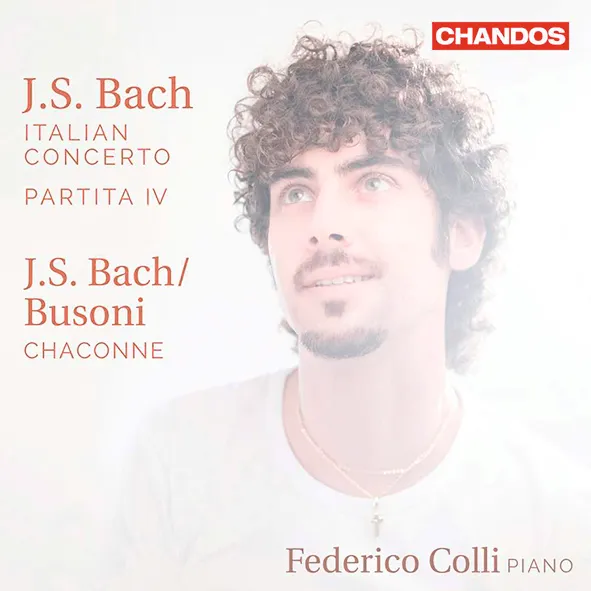
JS Bach Italian Concerto; Partita No. 4 in D, BWV 828; Chaconne Federico Colli (piano) Chandos CHAN 20079 59:42 mins
The Italian pianist Federico Colli has chosen works by Bach whose meaning, he tells us, is their relationship with the transcendent. In other words, he adds further into a lengthy exegesis, we must experience this relationship by means of a contemplative approach to reality. Well, yes, but do readers, or certainly Bach lovers need to have their thoughts and feelings channelled in directions chosen by the performer?
Colli’s Bach playing is from an expressive standpoint in the Romantic tradition, especially where dynamics are concerned. His use of the sustaining pedal is, on the other hand, admirably restrained. The ‘Ouverture’ of the D major Partita is crisply and coherently articulated, and the ‘Courante’ is delivered with spirit and impressive technical control. The poetic ‘Allemande’ is treated to a reflective delicacy which, on its own terms, is irresistible; and the concluding ‘Gigue’ is characterised by linear clarity and a playful, at times puckish demeanour. The Italian Concerto, where Bach explored, imitated and adapted orchestral textures to suit a two-manual harpsichord solo, has long been a favourite of pianists. Understandably, for not only is the music well suited to the piano but it is also a piece of outstanding contrapuntal craftsmanship. Colli gives a dazzling but never flashy account of the fast outer movements, while shaping the continuous melody of the Andante with lovingly-crafted contours. Colli concludes with Busoni’s transcription of the Chaconne of Bach’s D minor Partita for solo violin. It is a virtuoso transformation which, though impressively delivered, prompted immediate recourse to the sublime original.
Nicholas Anderson
